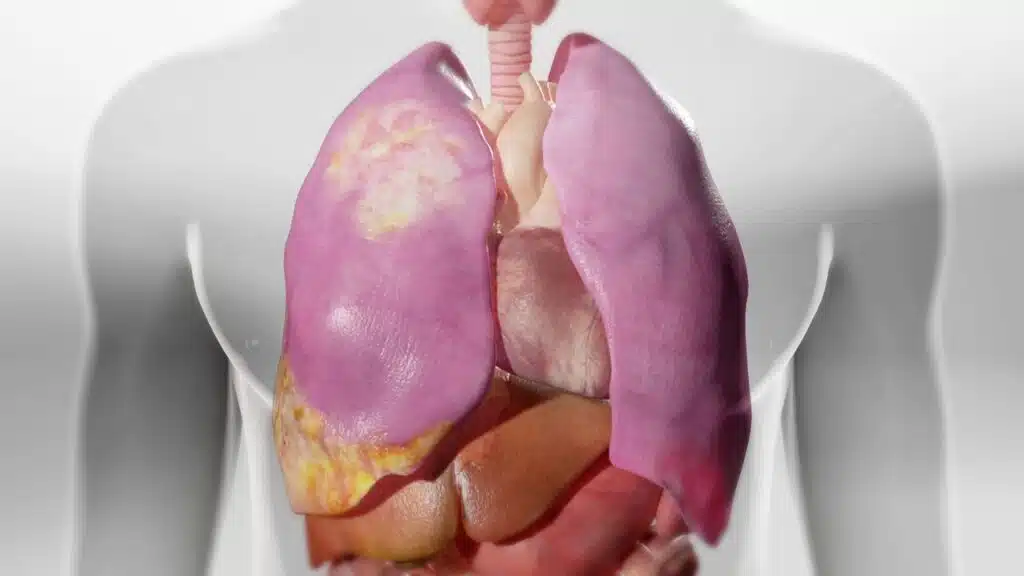Mesothelioma is a complex and devastating disease that is typically fatal for the people who acquire it. There is no cure for mesothelioma, and many of the standard treatment methods for other types of cancer don’t work safely or effectively against it.
The good news is that modern science has made tremendous advancements in terms of both detecting and treating mesothelioma. Although we’re still nowhere near finding a total cure, we do have the power to mitigate many symptoms and extend the lifespans of people who have developed this disease.
The success rate of these strategies is somewhat contingent on our ability to catch mesothelioma early. But the problem persists because it’s incredibly difficult to identify mesothelioma early on in its development.
Why is this the case?
The Basics of Mesothelioma
Mesothelioma is a form of cancer that develops in response to exposure to a material known as asbestos. Asbestos was once very common, but it has been banned in most applications, since we’ve now figured out how deadly it can be. This material, primarily used as insulation, is full of small, jagged fibers that lodge themselves into the mesothelial lining around your vital organs. With time, this irritation spurs the development of cancer, which then becomes extremely aggressive.
The symptoms of mesothelioma vary. For some people, they emerge suddenly and develop rapidly. For others, they roll out over a period of decades, so gradually that they’re barely noticeable. The symptoms also vary depending on what type of mesothelioma you’ve developed, as different symptoms are associated with diseases of different parts of the body.
The Importance of Early Detection
Discovering cancer early is typically important, and it’s arguably even more important for mesothelioma. Mesothelioma is known as one of the deadliest and most aggressive forms of cancer in existence, and once it begins to manifest, it can spread throughout the body quite quickly.
Remember, there is no cure or universally reliable treatment method for mesothelioma. However, if you catch mesothelioma early enough, you’ll have access to a wider range of treatment methods, and you might be able to stave off the spread of the disease. You may not be able to eliminate mesothelioma in your body, and you may not be able to completely stop it from spreading, but you can slow it down enough to extend your lifespan and mitigate many of your potential symptoms.
Why It’s So Hard to Catch Mesothelioma Early
These are just some of the reasons why it’s so hard to identify mesothelioma early in the process:
· The latency period. Mesothelioma develops over the course of a latency period, which can sometimes last for decades. After a person is exposed to asbestos, they might notice nothing wrong for 20 years, 30 years, or even longer. You may not even notice any symptoms until it’s too late to act early.
· Known and unknown risks. On top of that, not everyone who has been exposed to asbestos knows that they’ve been exposed to it. Certain types of people are at higher risk than others, such as military veterans, but there’s a non-negligible chance you’ve interacted with asbestos without even realizing it, despite its increasing rarity.
· Innocuous symptoms. If and when you do begin to notice mesothelioma symptoms develop, you should know that those symptoms may seem innocuous to you. Having a mild fever and a modest cough, for example, could easily be mistaken as flu symptoms. By the time you notice more frequent and more severe symptoms, some of your treatment options may already be off the table.
· Gradual and complex development. Cancer grows and spreads in different ways. Even in the category of mesothelioma, there are different subtypes of mesothelioma that behave in distinct, yet complicated ways. It’s not always clear what type of cancer you have or how it’s going to develop in the future.
· Lack of specialty. Because mesothelioma is so rare, only a handful of oncologists specialize in identifying it. In fact, some oncologists might overlook mesothelioma simply because they underestimate its risk of occurring.
What You Should Do If You’re at High Risk
If you know you’ve been exposed to asbestos in the past, or if you have other reason to believe that you might be at high risk for mesothelioma, it’s important for you to be proactive – and pay close attention to any physical symptoms you might develop. Even something as innocuous as an excessive cough or chronic fatigue could be a sign that mesothelioma is developing.
There are minimal risks and minimal costs associated with early mesothelioma screenings, so if you know you’re at risk for this disease, you should consider getting screened regularly. Work closely with your doctors and medical service providers so you can maximize your potential outcomes.
















